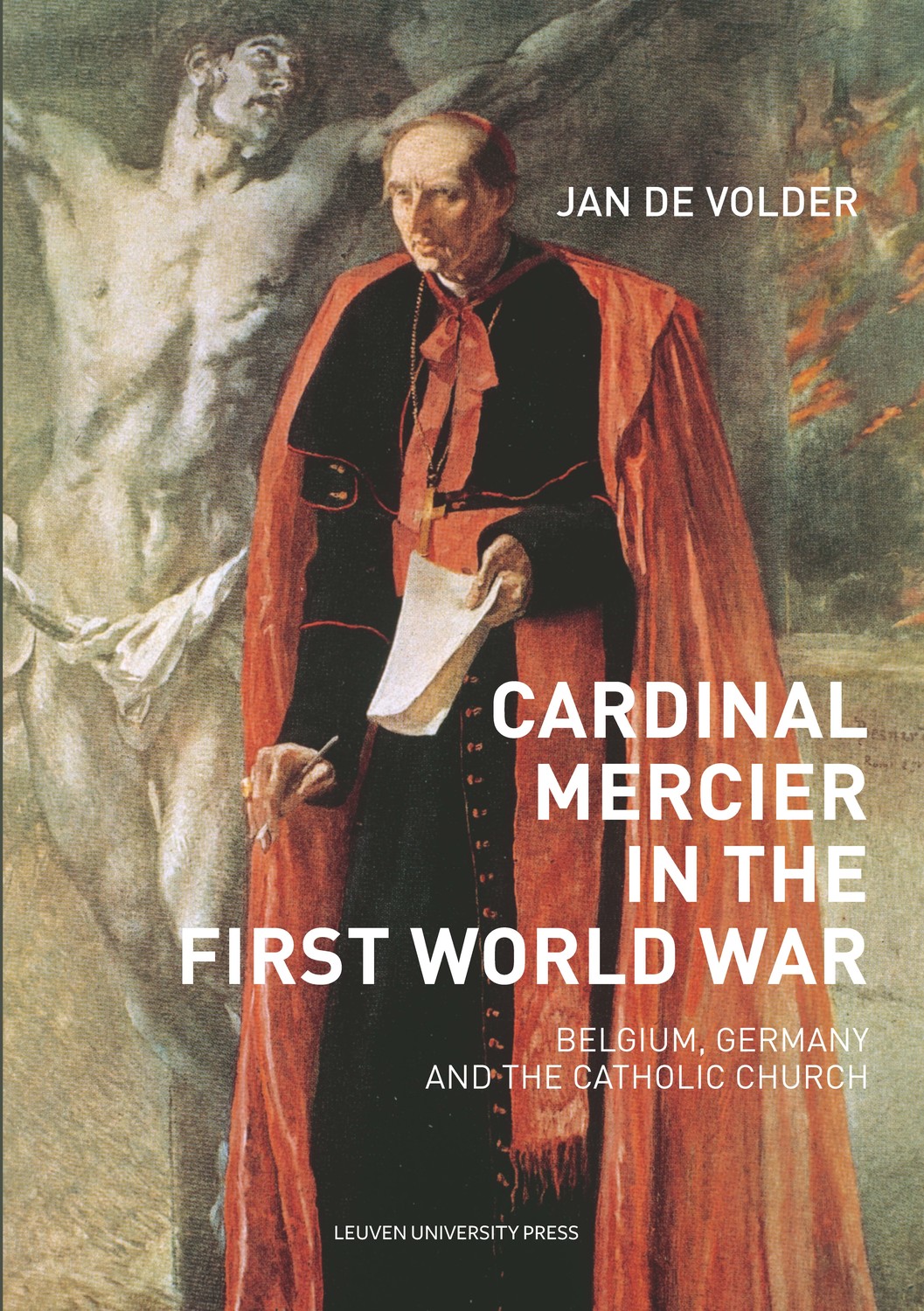
Cardinal Mercier in the First World War
Belgium, Germany and the Catholic Church
Jan De Volder
Church leaders and their contrasting opinions in the face of the Great War
Cardinal Désiré-Joseph Mercier, Archbishop of Malines, was the incarnation of the Belgian resistance against the German occupation during the First World War. With his famous pastoral letter of Christmas 1914 ‘Patriotisme et Endurance’ he reached a wide audience, and gained international influence and respect.
Mercier’s distinct patriotic stance clearly determined his views of national politics, especially of the 'Flemish question', and his conflict with the German occupier made him a hero of the Allies. The Germans did not always know how to handle this influential man of the Church. Pope Benedict XV did not always approve of the course of action adopted by the Belgian prelate. Whereas Mercier justified the war effort as a just cause in view of the restoration of Belgium's independence, the Pope feared that "this useless massacre" meant nothing but the "suicide of civilized Europe”.
Through a critical
analysis of the policies of Cardinal Mercier and Pope Benedict XV, this book sheds
revealing light on the contrasting positions of Church leaders in the face of
the Great War.
This publication is
GPRC-labeled (Guaranteed Peer-Reviewed Content).
Belgium and the German Invasion of 1914
Mercier’s Pastoral Letter “Patriotism and Endurance”
In Conflict with the Occupier
Mercier and Benedict XV
Arrests, Deportations, and State Looting
The Flemish Question
Holy War or Holy Peace
The Allies’ Hero of a Diminished Belgium
Conclusion
Annex: Patriotism and Endurance – Christmas 1914
Format: Monograph - ebook
264 pages
b&w illustrations
ISBN: 9789461662729
Publication: October 24, 2018
Series: KADOC-Studies on Religion, Culture and Society 23
Languages: English
Manfred Hauke, Rottenburger Jahrbuch fuer Kirchengeschichte (RJKG), 39/2020
Door een kritische analyse van het beleid van kardinaal Mercier en Paus Benedictus XV. en als vervolg op zijn “Kardinaal Verzet, Mercier, de Kerk en de oorlog van 14-18”, werpt dit boek van Jan De Volder dan ook een onthullend licht op de contrasterende standpunten van de kerkleiders tijdens de “rape of Belgium”, tijdens de Grote Oorlog, nl. de Pruisische kerk-staat-verhouding, tegenover de Belgisch-liberale, fundamentele godsdienstvrijheid. [...] Zeker lezen.
Stretto, november 2020
Moritz A. Sorg, Historische Zeitschrift // BAND 310 / 2020, https://doi.org/10.1515/hzhz-2020-1065
De internationale betekenis van deze Belgische kerkvorst verantwoordt de publicatie van een synthese in het Engels zodat dit vernieuwende onderzoek - onder meer in de Vaticaanse archieven - een ruimer internationaal bereik kan verwerven. Mercier was immers niet enkel belangrijk voor het bezette Belgische grond- gebied maar ook voor de internationale scene.
Luc Vandeweyer, Belgisch Tijdschrift voor Nieuwste Geschiedenis 2019 2-3
De verschillende vragen over het leven en werk van Mercier tonen echter bovenal dat De Volder in zijn opzet is geslaagd: het boek heeft een eerste aanzet gegeven om de complexe figuur van Mercier verder te onderzoeken.
Kasper Swerts, Contemporanea, Jaargang XXXVIII — Jaar 2019 — Nummer 4, https://www.contemporanea.be/nl/article/20194-recensies-swerts-over-de-volder
Uit deze studie blijkt vrij duidelijk dat de plaats van Mercier in de internationale diplomatie tijdens de Eerste Wereldoorlog zeker niet deze was van een klein figurantje. [...] Dit uiterst goed gedocumenteerd boek (met personenregister) laat een aantal tot op heden niet ontsloten bronnen tot hun volle recht komen (Vaticaan, aartsbisdom Mechelen, archief van het Koninklijk Paleis, Rijksarchief, uitgebreide literatuurlijst). Maar niet in het minst schetst het een naar onze bescheiden mening objectief en her en der verrassend beeld van een van de grootste figuren in de Belgische geschiedenis.
Alex Vanneste, Volkskunde, 2019, 2
Ludo Meyvis, Campuskrant, 21 november 2018
